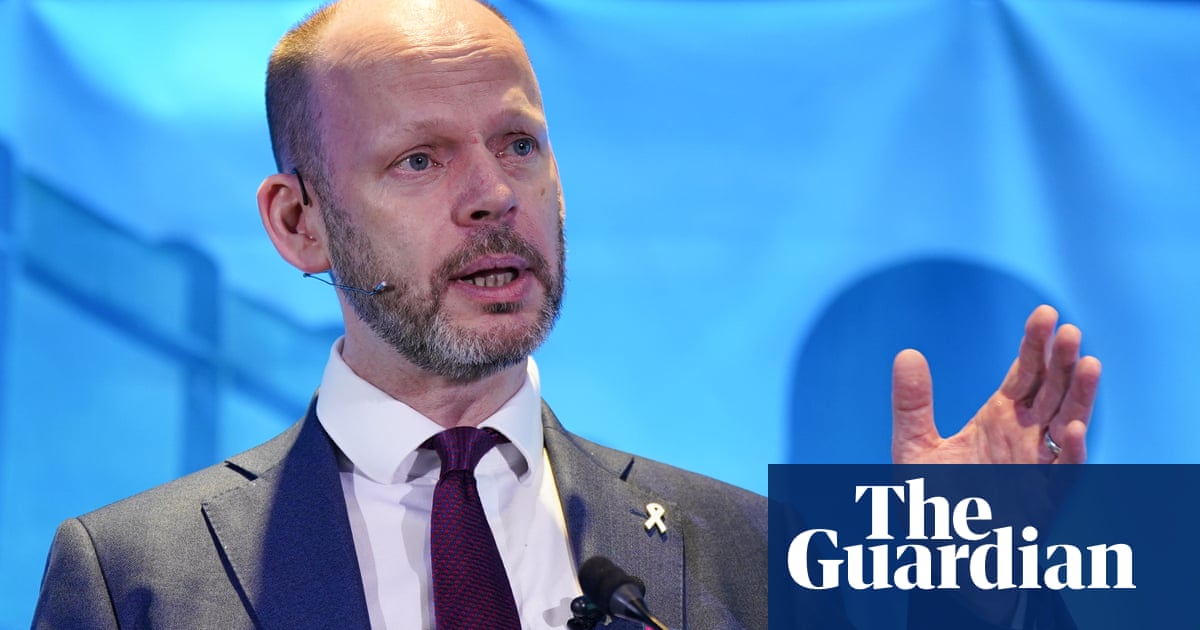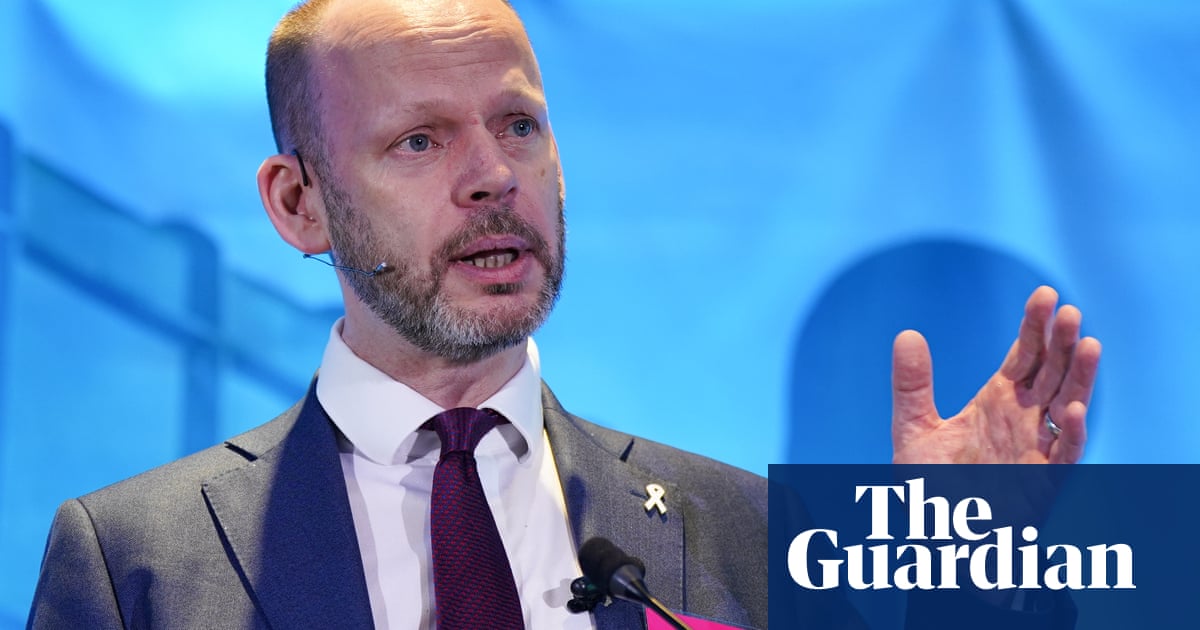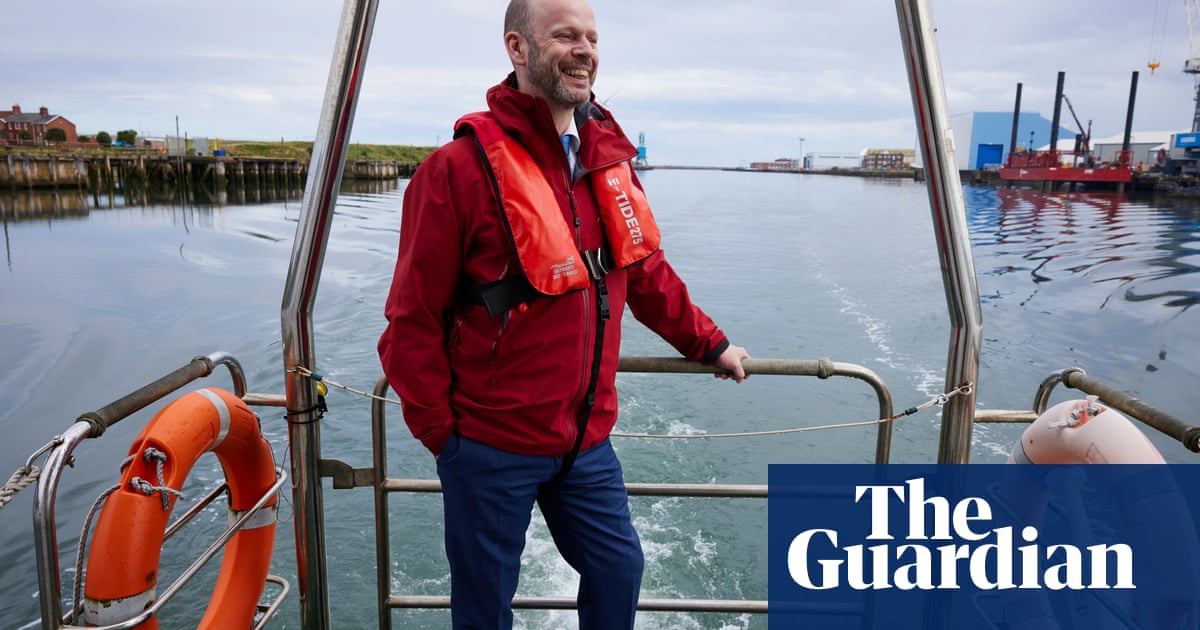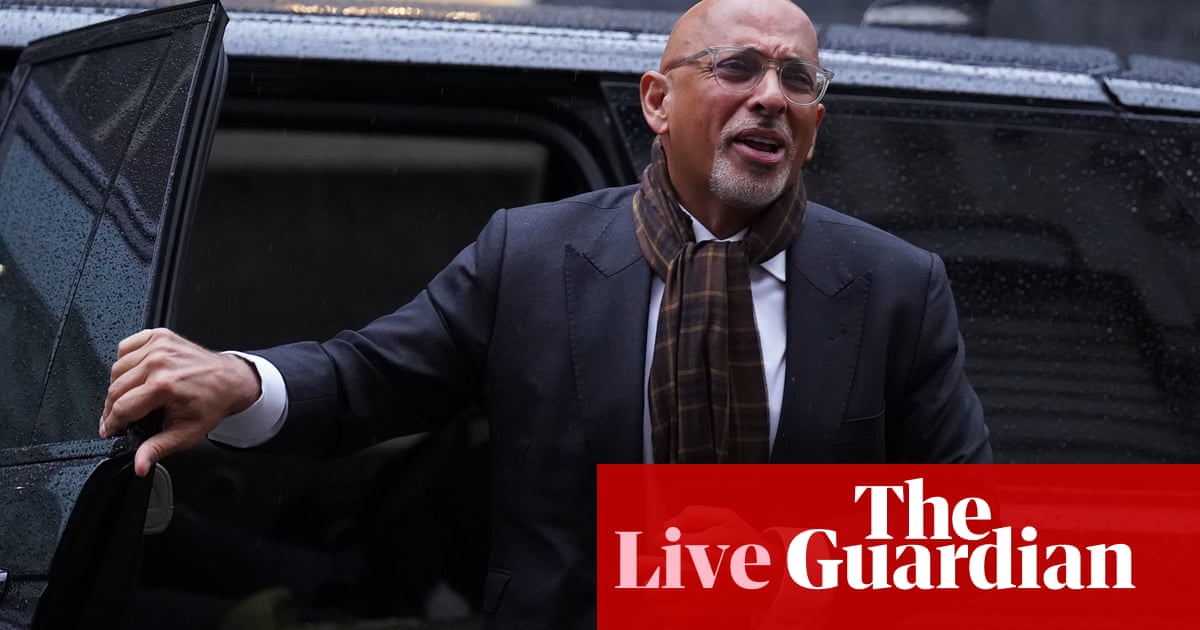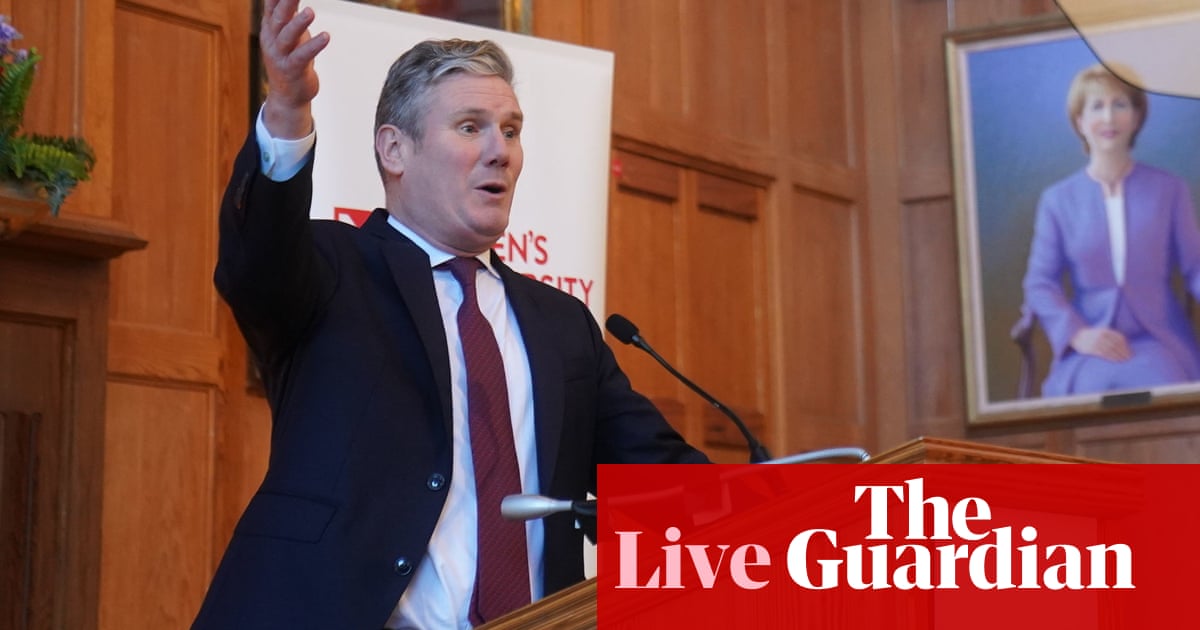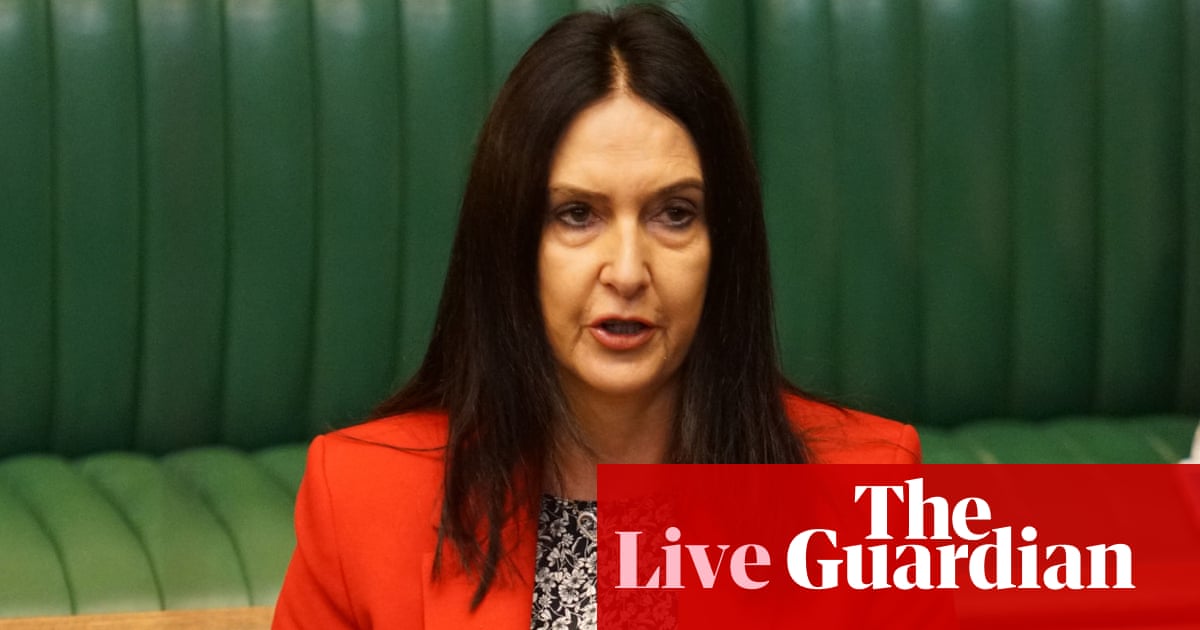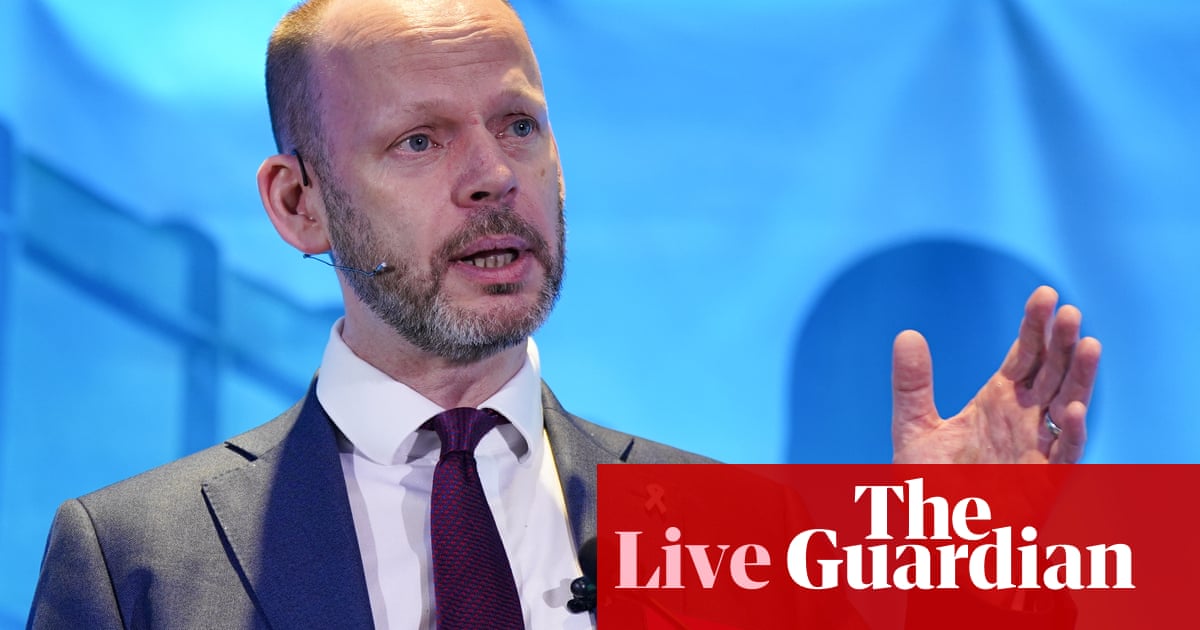
Driscoll confirms he is standing as independent candidate for north-east mayor, after raising £30,000 in just over two hours
Jamie Driscoll has now raised more than £30,000 to fund his campaign to run as an independent candidate for mayor of the north-east next year. That is more than the target he set for fundraising by the end of August (see 1.55pm), and it means he is definitely running. He has confirmed that by tweeting a link to an Elton John song – I’m Still Standing.
Afternoon summary
Justine Greening, the Conservative former education secretary, has criticised Rishi Sunak’s plans to limit access to university degrees in England, accusing him of “anti-levelling up in action” if he presses ahead with the policy.
Jamie Driscoll, the North of Tyne mayor who has been blocked from being Labour’s representative to contest the north-east mayoralty, has announced that he is resigning from the party to try to run as an independent candidate.
Labour MPs and anti-poverty campaigners have attacked Keir Starmer’s commitment to keep the Conservatives’ controversial two-child benefit limit.
Robert Jenrick, the immigration minister, has signalled that the government is opposed to further concessions to the House of Lords on the illegal migration bill. (See 4.58pm.) He was speaking at the start of a debate after which MPs will vote to overturn a series of amendments passed by the Lords which Jenrick claimed would drive “a coach and horses” through the legislation. The bill will return to the Lords this evening, where peers will have the chance to vote yet again to water down the bill.
When the debate on the illegal migration bill finishes in the Commons, there could be up to eight divisions – taking up to two hours. After that the bill will return to the House of Lords, where the voting could go on very late. “The house may sit late,” the Lords schedule says.
In the Lords this afternoon the Labour peer Lord Harris of Haringey said the government whips were inflicting a “punishment beating” on peers by timetabling the votes like this. He said:
Is it not the case that the way that this is being structured is you like almost a sort of punishment beating for the House of Lords for daring to question a particular piece of legislation?
Would it not be better for us to agree that we finish at the normal time tonight then we can consider it at a sensible hour tomorrow [Tuesday]?
If the Commons need to consider it again they can either do it if they wish very late at night tomorrow or perhaps can wait until the following day [Wednesday].
In response Lady Williams, the government chief whip, said there was “nothing unusual about this ping-pong process”.
In the Commons Robert Jenrick is now winding up his speech. He says it is time for the will of the elected chamber to prevail.
Jenrick says government opposed to further concessions to Lords on illegal migration bill
In his speech opening this afternoon’s debate Robert Jenrick, the immigration minister, confirmed that the government is opposing further concessions to the Lords. He said:
The issue now before the house is whether the clearly expressed views of this house, the elected chamber, not just in the vote last week, but throughout the earlier passage of the bill, should prevail.
We believe that inaction is not an option, that we must stop boats, and that this bill is a key part of our plan to do just that.
The message in the means must be absolutely clear and unambiguous. If you come to the UK illegally you won’t be able to stay here. Instead you’ll be detained and return to your home country or removed to a safe third country.
There is simply no point in passing legislation that does not deliver a credible deterrence and provides the means to back it up with effective and swift enforcement powers.
We can’t accept amendments that provide for exceptions, qualifications and loopholes which would simply perpetuate the current cycle of delays and endless late and repeated legal challenges to removal.
Iain Duncan Smith, the former Tory leader, asks Robert Jenrick about one of the concessions announced last week relating to how the illegal migration bill deals with people who claim to be victims of modern slavery.
One of the aims of the bill is to stop people avoiding deportation by saying they have been a victim of illegal slavery. The government claims this protection is being abused.
Last week the government said guidance would be issued saying that, if a person has been a victim since they arrived in the UK and if they agree to cooperate with a UK investigation, they would have the protection currently available to victims of modern slavery.
Duncan Smith suggested that it would be better to include this change on the face of the bill, instead of just promising guidance.
In response, Jenrick suggested that legislation would contain the risk of loopholes. He implied statutory guidance would be more flexible.
Sir Edward Leigh (Con) intervenes. He asks Robert Jenrick if he has seen the comments by Ken Clarke, who is “not a vicious, rightwing creature”, who says he sees no alternative to the bill. And he says Michael Heseltine, another figure seen as being on the Tory left, has spoken about the need to reduce migration.
Jenrick says he has seen Clarke’s comments, and agrees with them.
MPs debate Lords amendments to illegal migration bill
In the Commons Robert Jenrick, the immigration minister, is now opening the debate on the Lords amendments to the illegal migration bill.
He says MPs voted 18 times on Tuesday last week to reverse amendments passed by the Lords. That was a record number of votes in a day, he says.
He says the Lords amendments were driving “a coach and horses” through the bill.
The government made some “reasonable changes”, he says, and the number of issues dividing the Lords and the Commons has now been “whittled down to nine”.
Barges could still be used for asylum seekers under Labour, says Cooper
Barges and disused military bases could continue to be used to house asylum seekers under a Labour government until a claims backlog has cleared, the shadow home secretary, Yvette Cooper, has indicated.
Cooper made the point during a Q&A after she delivered a speech saying Labour would criminalise the deliberate use of AI chatbots to radicalise and train would-be terrorists.
Later this afternoon MPs will debate the latest amendments to the illegal migration bill passed by the House of Lords, in a further round of “ping pong” as the two houses seek to resolve their differences over the bill.
At the afternoon lobby briefing the PM’s spokesperson said he did not think the government would be offering any further concessions to the Lords on the legislation.
Carpenters, bricklayers and roofers added to shortage occupation list for work visas
Carpenters, bricklayers and roofers are among migrant workers who will be allowed to apply for work visas and get a discount on fees in an effort to fill UK job shortages, PA Media reports. PA says:
The Home Office said it was “temporarily easing visa restrictions” for a string of construction roles by adding them to the shortage occupation list.
This means foreign workers trained in certain professions qualify for a work visa and are allowed to pay a reduced application fee.
The government hopes the move will help boost the economy, “stimulate development” and “attract new talent”, the department said.
The announcement comes in the wake of calls from some Tory MPs who urged Rishi Sunak to cut immigration and cut back on temporary visa schemes.
Bricklayers, masons, roofers, roof tilers, slaters, carpenters, joiners, plasterers and other “construction and building trades not elsewhere classified” have all been added.
Those working in a shortage occupation can be paid 80% of the job’s usual going rate.
Back in the Commons, Sir Peter Bottomley (Con) asked Gillian Keegan to consider, when judging what counted as a low-value degree, that religious leaders earn very little, but can contribute greatly to society.
Keegan, the education secretary, said she accepted his point. But she said there were some students still earning less than £18,000 a year, five years after graduating, and that this was not acceptable.
And Valerie Vaz (Lab) asked Keegan what she meant by a low-value degree.
Keegan said the Office fo Students already uses B3 measures to judge courses. It considers how many students continue with a degree, how many complete courses and how many go into a high-skilled job.
She said 18 providers were a cause for concern on this basis. And she suggested business and management courses, and computer science courses, needed special attention. She said there was a vast difference in the outcome for people studying these subjects at different universities.
Planning for emerging infectious disease outbreak "woefully inadequate" before Covid, inquiry told
Planning for an emerging infectious disease outbreak in the NHS was “woefully inadequate”, the doctors’ union has told the UK Covid inquiry, saying: “We felt so unprepared.”
In the final week of the inquiry’s investigation into the UK’s preparedness for the pandemic, the chair of the British Medical Association, Prof Philip Banfield, said it had warned years before the virus hit that a decision to split public health directors from the NHS would “threaten the ability to mount an effective pandemic response”. But when the virus hit, he said: “I’ve never seen doctors so worried.”
The UK had prepared for pandemic flu, but the 2019 version of the national risk register also contained a planning assumption for an emerging infectious disease outbreak of 2,000 cases and 200 fatalities. There were only eight beds in four units around the country ready to treat people in those cases, according to evidence to the inquiry from NHS England.
Under questioning from a lawyer for the Covid-19 Bereaved Families for Justice group, Banfield agreed this was “woefully inadequate”.
The Trades Union Congress revealed that workers were not consulted during pandemic planning and the Health Foundation said not enough money was invested in the NHS to keep pace with demand, with spending £40bn below that of Frances, and social care and public health funding slashed by 12% and 15% per capita respectively.
Kate Bell, the deputy general secretary, said the TUC had in 2016 made “an unprecedented series of warnings, raising the alarm about pressures on the NHS”. She went on:
There was very clear evidence that the NHS was under pressure in terms of its capacity … but also in terms of staffing levels, and it was having a significant impact on the ability to cope with additional shocks.
Gillian Keegan"s statement to MPs on limiting access to "low-value" degree courses in England
Gillian Keegan, the education secretary, is making a Commons statement on the plan to limit the number of students studying what the government calls “rip-off” courses in England.
Until now the government has not given a clear definition of how it judges if a course is not leading to students getting good jobs. (See 1.15pm.)
But Keegan may have given a hint when she told MPs there are 66 higher education providers where fewer than 60% of graduates go on to high-skilled employment, or further study, within 15 months. “This is not acceptable,” she said.
Driscoll confirms he is standing as independent candidate for north-east mayor, after raising £30,000 in just over two hours
Jamie Driscoll has now raised more than £30,000 to fund his campaign to run as an independent candidate for mayor of the north-east next year. That is more than the target he set for fundraising by the end of August (see 1.55pm), and it means he is definitely running. He has confirmed that by tweeting a link to an Elton John song – I’m Still Standing.




